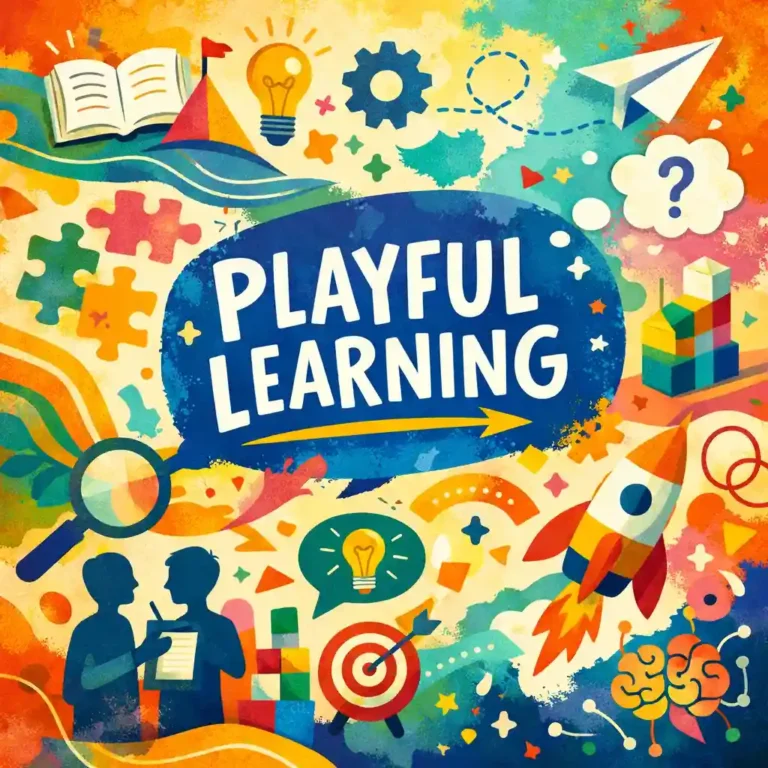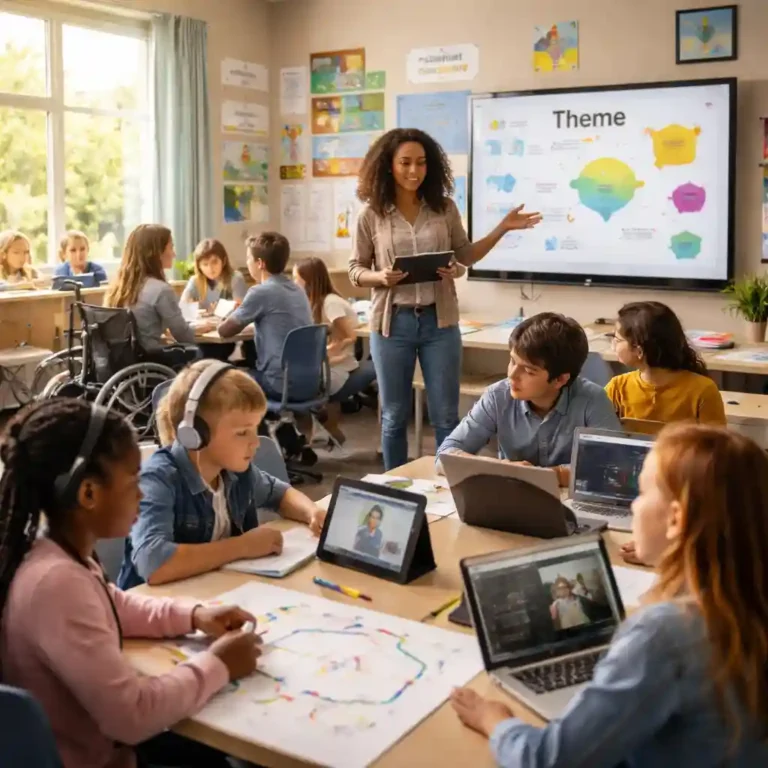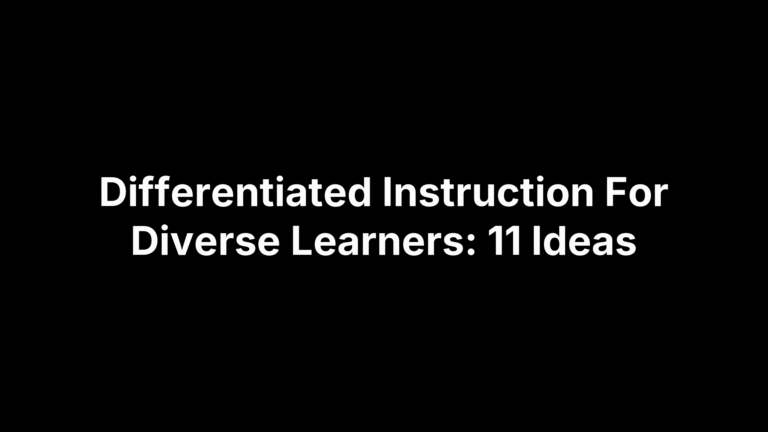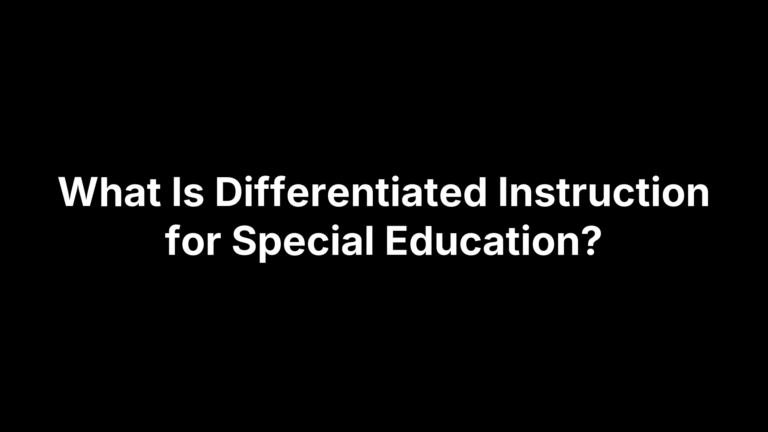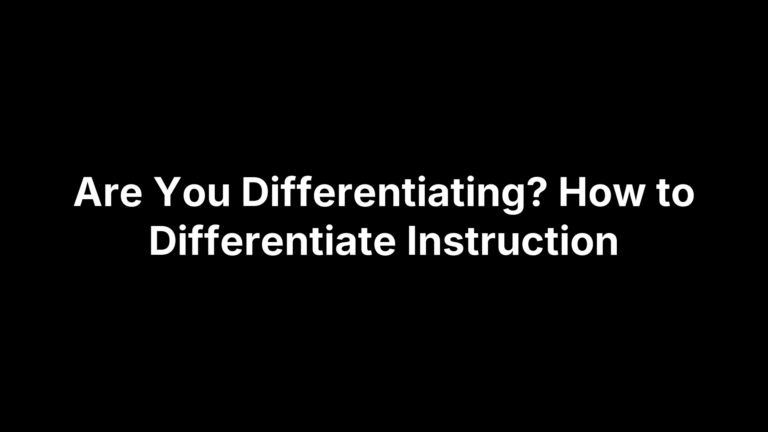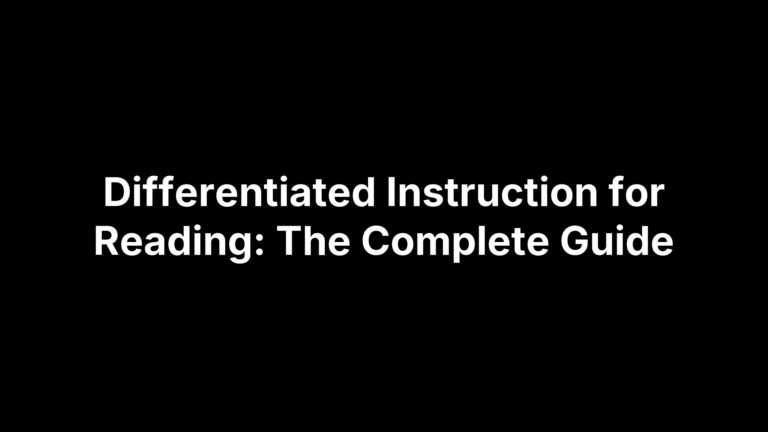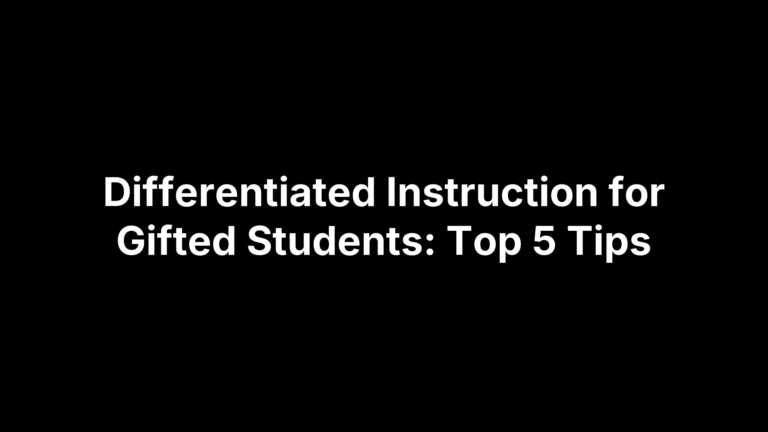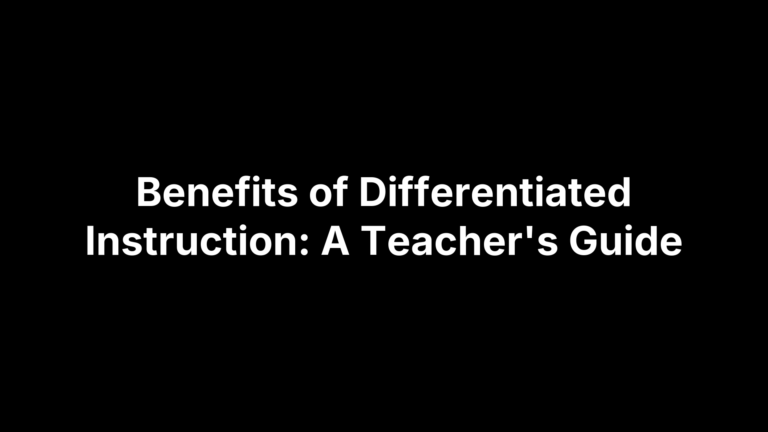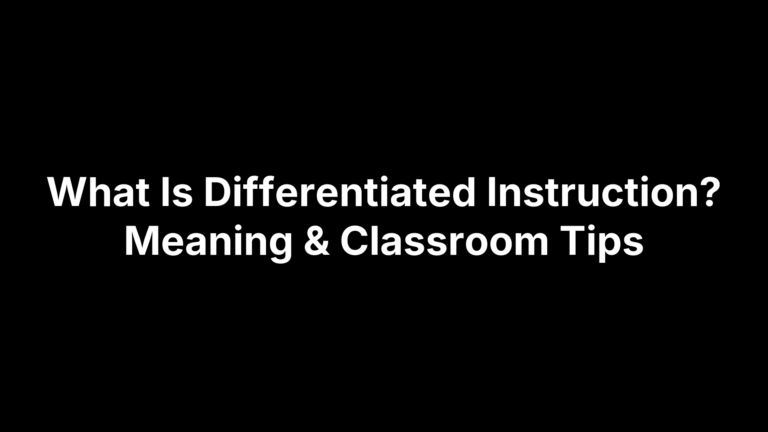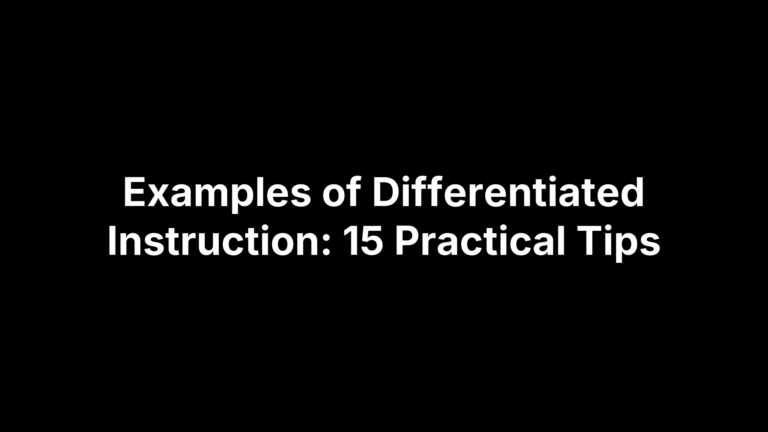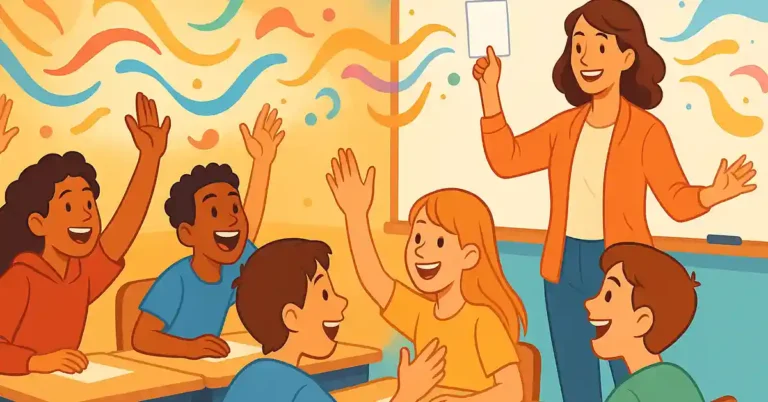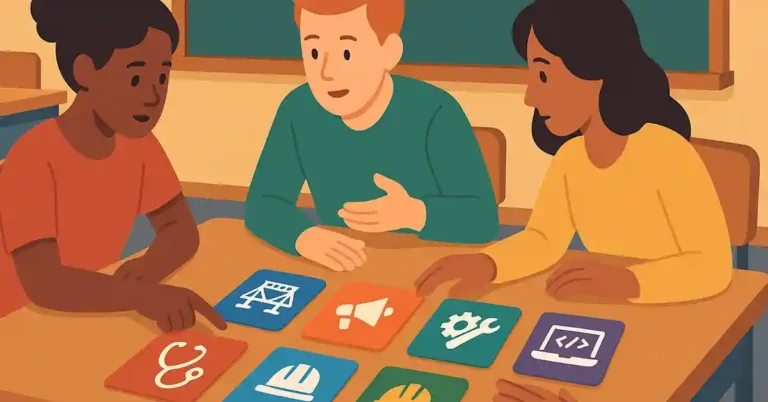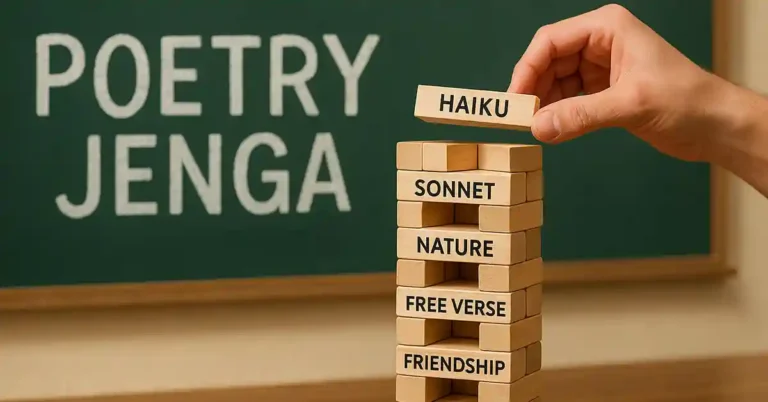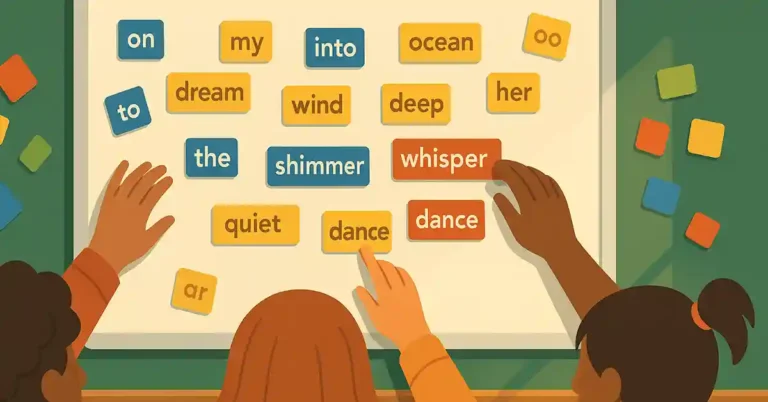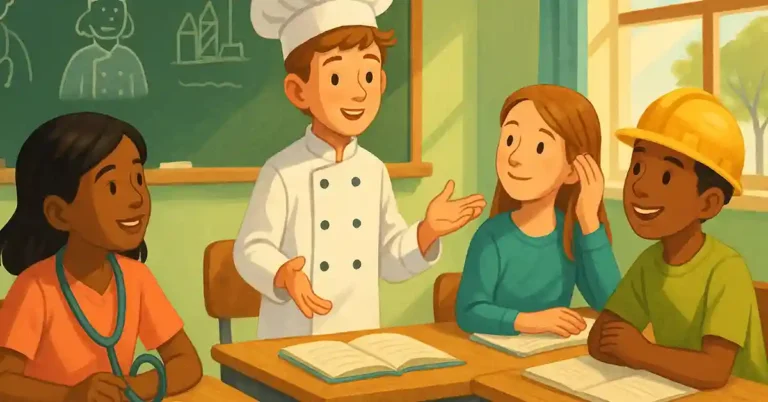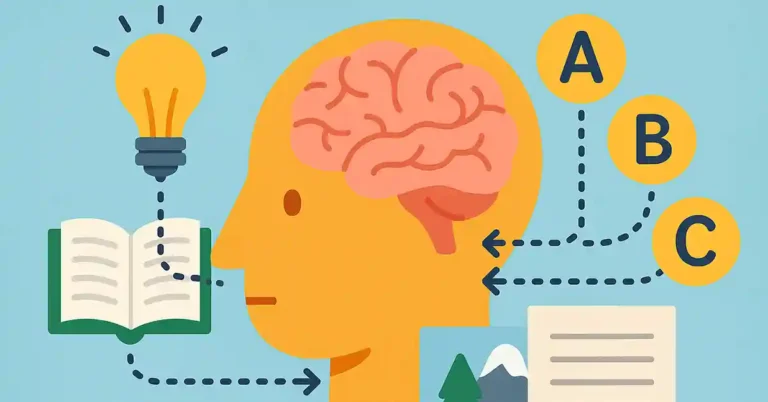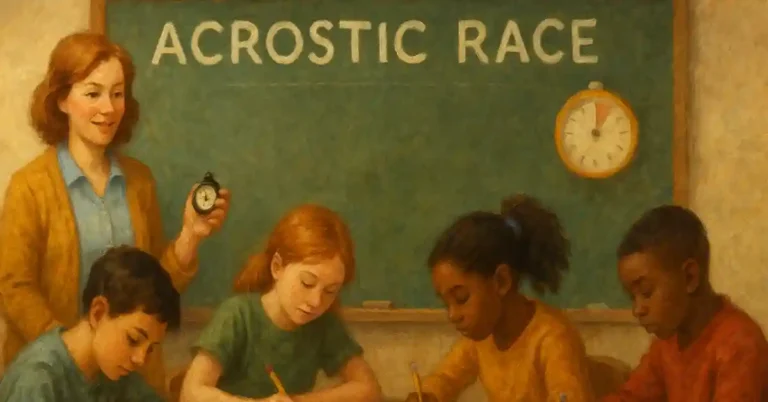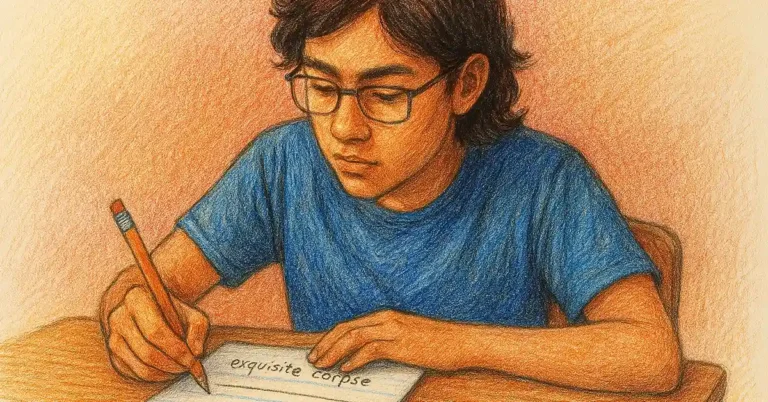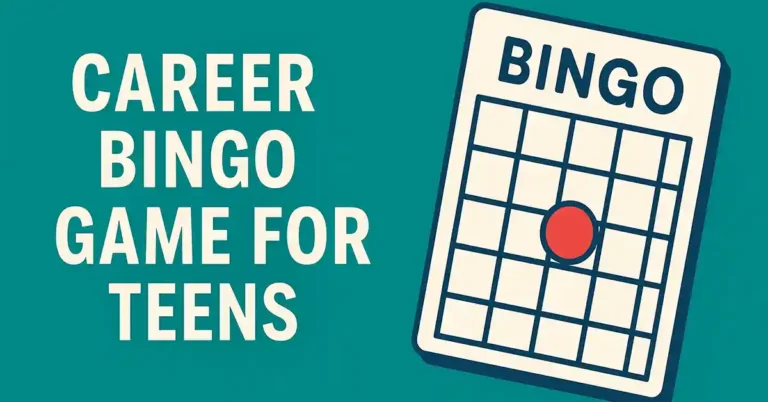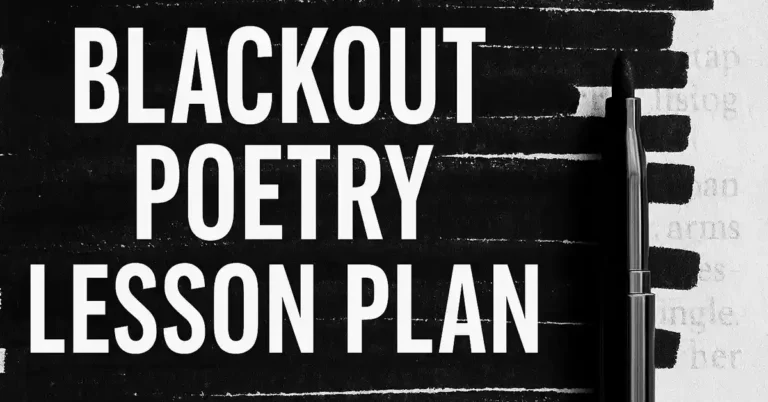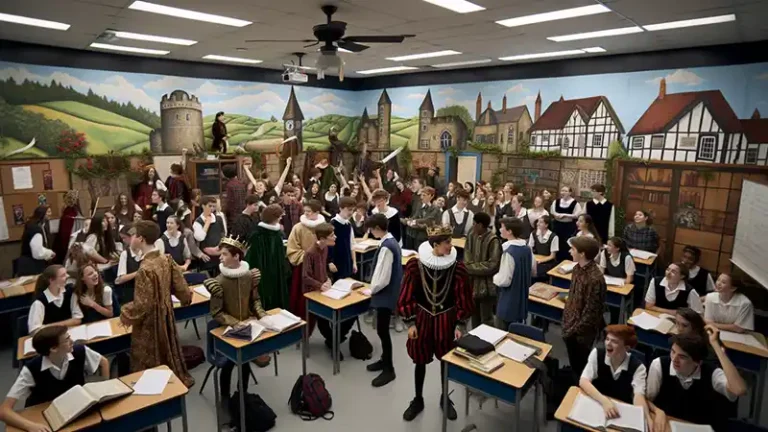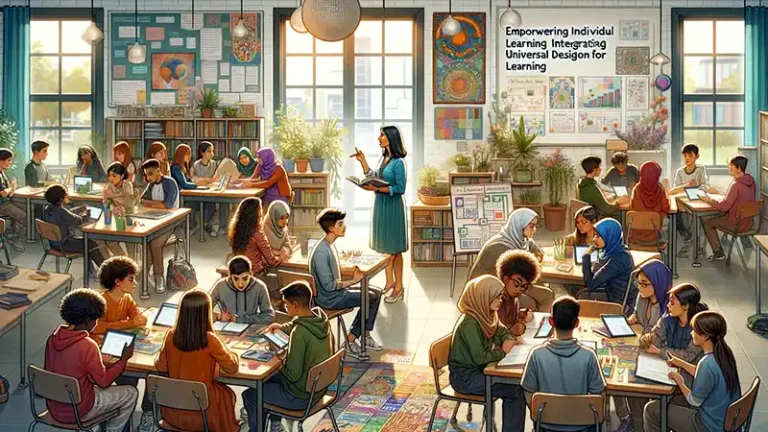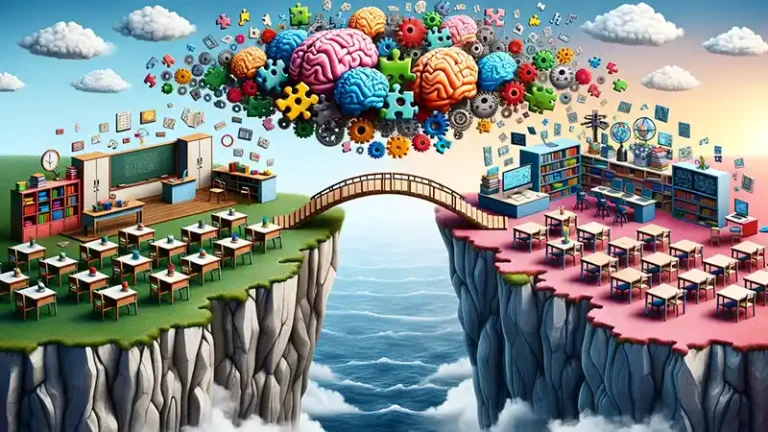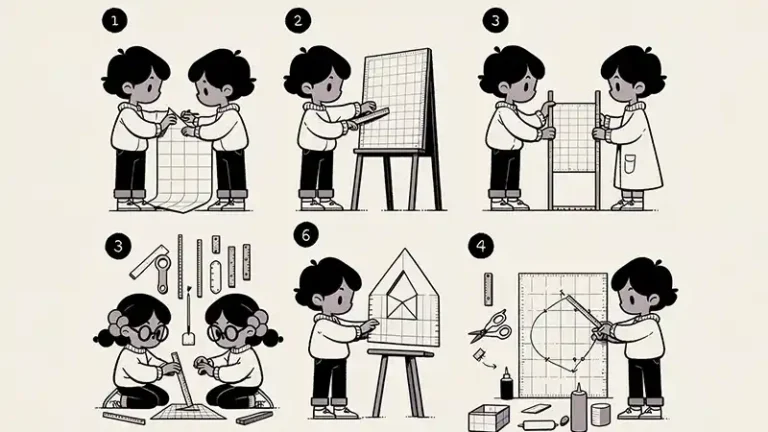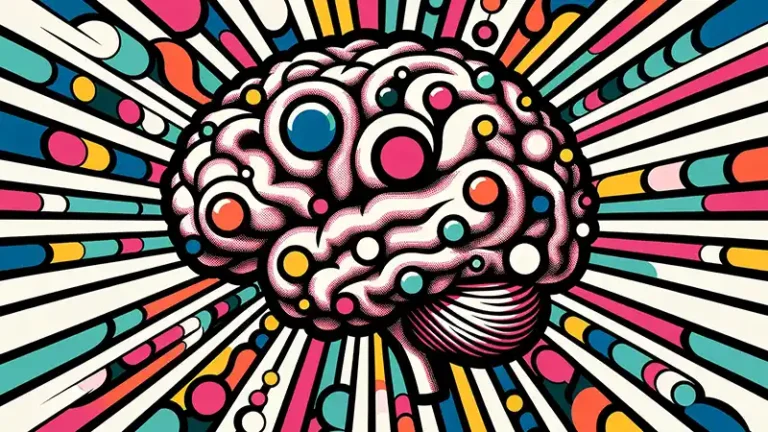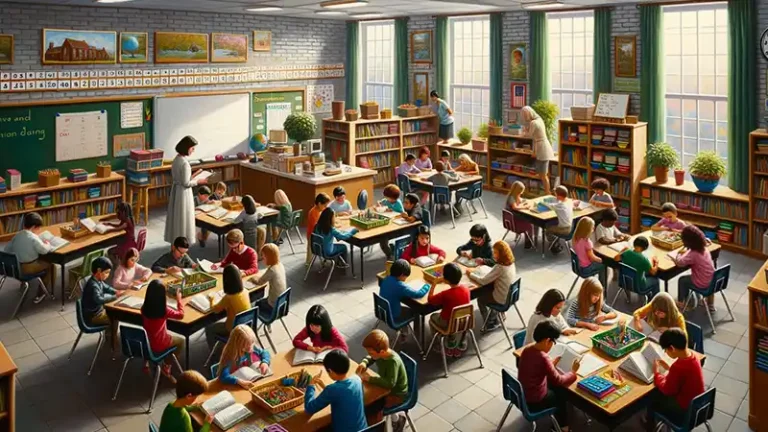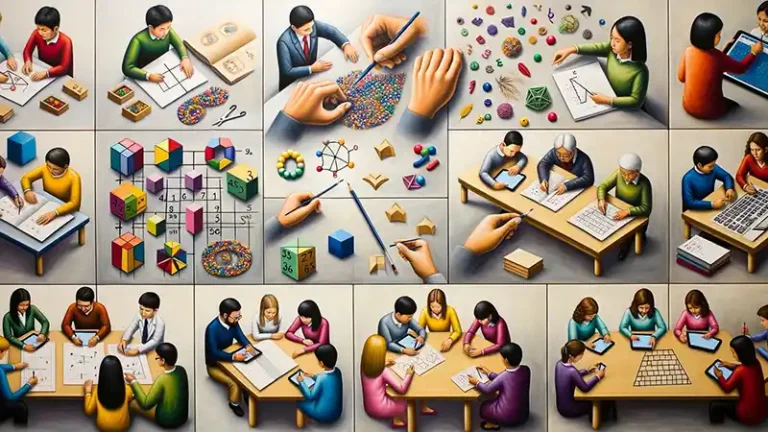Welcome to our comprehensive resource hub dedicated to the dynamic world of differentiated instruction. Here, educators, researchers, and curious minds alike will find a curated selection of articles that delve deep into the principles and practices of differentiated teaching. Whether you’re a seasoned educator seeking to refine your approach or a new teacher exploring ways to address the diverse needs of your students, this collection offers valuable insights, innovative strategies, and real-world examples. Our goal is to empower you with knowledge and tools to create an inclusive, engaging, and effective learning environment for every student. Dive into our articles to unlock the full potential of differentiated instruction in your classroom!
Playful Learning in Secondary Classrooms: Why Serious Learning Needs a Little Play
Playful learning is an instructional approach that blends play, curiosity, experimentation, and joy with clear academic goals. In secondary classrooms, playful learning doesn’t mean chaos or “just games.” It means intentionally designing learning experiences where students explore ideas, test hypotheses, take creative risks, and actively construct meaning. At its core, playful learning combines: Clear learning…
The Benefits of Metacognitive Pedagogy in the Classroom
What Is Metacognitive Pedagogy? Metacognitive Pedagogy is an approach to teaching that intentionally helps students think about their own thinking. In practical terms, it means teaching students to plan how they will learn, monitor their understanding while learning, and reflect afterward on what worked, what didn’t, and why. Instead of learning being something that happens…
UDL Lesson Plan Template: A Practical Guide for Inclusive, Flexible Teaching
When teachers first hear Universal Design for Learning, the idea often sounds inspiring—but abstract. I remember thinking, This makes sense… but how do I actually plan with it? That’s where a UDL lesson plan template becomes incredibly powerful. It turns a philosophy into something concrete, usable, and realistic for day-to-day teaching. Instead of retrofitting accommodations…
Differentiated Instruction For Diverse Learners: 11 Ideas
You have 28 students sitting in front of you. Five are reading three grades below level. Three are gifted and finish everything in half the time. Seven have IEPs. Four are English language learners. Two have ADHD. And you’re supposed to reach every single one of them in the next 42 minutes. The pressure to…
What Is Differentiated Instruction for Special Education?
Differentiated instruction for special education means planning the same lesson so every learner can access it and show what they know, using intentional adjustments to content, process, product, and the learning environment. It isn’t 25 separate lesson plans; it’s flexible options, targeted supports, and ongoing assessment that meet students where they are and move them…
Are You Differentiating? How to Differentiate Instruction
Thirty students, one lesson, many starting points. Differentiated instruction is the practical answer: planning for learner variability. You adjust what students learn and how they access it (content), how they make sense of it (process), how they show it (products), and the conditions for learning (environment). Decisions hinge on readiness, interests, and learning profiles, guided…
Differentiated Instruction for Reading: The Complete Guide
Differentiated instruction for reading is simply teaching to the same standards while adjusting the path to get there. You vary what students read (content), how they engage with it (process), how they show understanding (product), and the setup that supports them (learning environment). Using quick assessments and flexible small groups, you match instruction to each…
Differentiated Instruction for Gifted Students: Top 5 Tips
If your gifted students finish in minutes and then fidget, or ace the pretest and still get more of the same, you know the gap: they need depth, pace, and purpose—while you need plans that fit a real teacher’s day. Maybe you’ve tried extra worksheets, unstructured “independent” projects, or pairing them as helpers and it…
Benefits of Differentiated Instruction: A Teacher’s Guide
Differentiated instruction is simply good teaching made intentional: you set clear learning goals, then offer more than one way to get there. Instead of one pace, one text, or one kind of assignment for everyone, you adjust the content, the learning process, and the product so students can access the same objectives at a just-right…
What Is Differentiated Instruction? Meaning & Classroom Tips
Differentiated instruction is a flexible teaching approach that adapts content, process, product, and learning environment so every student can achieve the same high-level goals in ways that work best for them. With classrooms spanning languages, learning profiles, and readiness levels, teachers need a plan that honors difference without lowering expectations. Neuroscience confirms that learners process…
A Simple Cover Letter Lesson Plan for Workplace Students
When it comes to applying for jobs, resumes often get the spotlight. But here’s a little secret: your cover letter can make all the difference. A strong cover letter is like a handshake before the interview—it introduces you, shows interest, and explains why you’re a great fit. In this cover letter lesson plan, students will…
15 Examples of Differentiated Instruction That Work in Real Classrooms
Differentiated instruction (DI) means intentionally adjusting content, learning processes, final products, or the classroom environment so every student can tackle the same standard at a just-right level of challenge. Think of it as adjusting the volume rather than changing the song. If you want concrete ideas rather than theory, keep reading—this guide delivers, and it’s…
Rhyme Time Challenge: Turning Rapid Rhymes into Remarkable Learning
Why I Swear by the Rhyme Time Challenge If you’ve ever watched a room full of students transform from Monday-morning zombies into word-slinging poets in under sixty seconds, you already know the magic of a good rhyming game. The Rhyme Time Challenge is my go-to energizer for breaking linguistic ice, stretching vocab muscles, and sneaking…
Job Scenario Problem Solving: Sparking Critical Thinking
If there’s one thing I adore more than fresh stationery, it’s watching students light up when classwork finally feels “real.” Scenario-based learning does exactly that—it drops learners into authentic situations where their decisions matter. In this lesson I’ll show you how to turn job scenario problem solving into a dynamic activity that sharpens critical thinking,…
Poetry Jenga: A Fun, Interactive Way to Teach Poetry in the Classroom
If you’ve ever tried teaching poetry to middle or high school students and been met with groans, sighs, or blank stares, you’re not alone. Poetry can feel intimidating, abstract, or—dare I say it?—boring to students who haven’t found their poetic groove. But what if I told you there’s a way to make poetry lessons thrilling,…
Professional Timeline Lesson Plan: Guiding Students From Classroom to Career
If you’ve ever fielded the classic “When will we ever use this?” question, a professional timeline lesson delivers the answer in bold, neon letters. By asking students to research and plot the schooling, trainings, and real-world experiences required for a chosen career, you help them connect classroom learning to tangible futures. More than a one-off…
Story to Poem Lesson Plan: Turning Tales into Poetry
I’ve always loved watching students experience that lightning-bolt moment when a text suddenly feels alive in their hands. The Story to Poem activity delivers those moments in bunches. By asking learners to remodel a piece of prose into verse, we press all the right buttons at once: close reading, inference, figurative language, creative risk-taking, and…
Metacognitive Reading Strategies Every Teacher Should Try
I’ve spent two decades watching students zip through pages without really thinking about what they’re reading—like driving on autopilot and missing every landmark. Metacognitive reading strategies switch off that cruise control. They invite students to notice their thinking, steer it intentionally, and arrive at meaning on purpose. In this post, I’ll unpack what metacognitive reading…
Magnetic Poetry Lesson Plan: Turn Your Whiteboard into a Poem-Making Factory
Harnessing this power in the classroom need not be complicated. With a magnetic board and a thoughtfully selected set of word tiles, you can create a dynamic environment in which students explore poetic structure, refine word choice, and collaborate with ease. The lesson plan below provides clear objectives, materials, and step-by-step guidance—whether you prefer to…
Career Day Role Play Lesson: An Engaging Career Game
Choosing a career path can feel overwhelming for students, especially when their knowledge of the working world is limited to what they see around them. One of the most exciting ways to expand their understanding—and spark curiosity—is through an engaging career day role play lesson. This activity not only introduces students to a variety of…
Unlock Better Memory with a Mnemonic Device Generator
Need a fast and fun way to remember complex information? Our AI-powered mnemonic device generator creates custom memory aids in seconds—just enter your topic or list, and let the brain-hacking magic begin! Whether you’re cramming for a test, teaching a tricky concept, or trying to recall random facts at a dinner party (we see you,…
Acrostic Poetry Lesson Plan: The Acrostic Race
(Spoiler: It’s part poetry slam, part Mario Kart, and 100 percent classroom gold.) Why Run an Acrostic Race? Mnemonic power – Encoding ideas letter-by-letter creates high-quality memory cues, improving recall by up to 20 percent Verywell Mind. Vocabulary growth – Classroom studies show acrostic writing measurably lifts word-choice sophistication and topic-specific vocab. Repository UM Jember….
Salary Guess Game: Exploring Wage Disparities Across Professions
Understanding the factors that influence salaries is crucial for students as they prepare for their future careers. The “Salary Guess Game” is an interactive classroom activity that encourages students to explore wage disparities across various professions. By estimating and ranking salaries, students gain insights into how education, demand, experience, and societal value impact earnings. Activity…
Exquisite Corpse Poetry: A Collaborative Lesson Plan for Creativity
There’s nothing like a little poetic chaos to ignite the imagination—and exquisite corpse poetry is the perfect way to do just that. This lesson plan transforms your classroom into a whirlwind of creativity, surprise, and delightful absurdity. Ready to have your students giggling, writing, and maybe even questioning their understanding of poetry? Let’s dive in….
Career Charades for Students: A Fun Lesson Plan
Let’s be honest—talking about careers with high school students can sometimes feel like tossing marshmallows at a brick wall. You say “career readiness,” they hear “nap time.” But what if I told you there’s a way to get your students laughing, moving, and thinking critically about different professions—all without anyone touching their phones? Welcome to…
Haiku Examples: Reading the Classics, and Writing Your Own
If you’ve ever wanted to bottle up a moment in time and describe it in just a few words, you’re going to love haikus. These small but mighty poems are rich in imagery, emotion, and simplicity. Whether you’re teaching poetry in class or just exploring it for yourself, haiku examples are a great place to…
The Haiku Lesson Plan: An Outdoor Poetry Activity to Spark Creative Thinking
The Haiku Hunt There’s something magical about poetry and fresh air. Maybe it’s the breeze whispering secrets to the trees or the way dragonflies dance just right to the rhythm of a haiku lesson. Whatever the reason, The Haiku Hunt is one of my favorite ways to combine creativity, observation, and a breath of fresh…
Career Bingo Game for Teens: An Engaging Lesson Plan
Career exploration doesn’t have to be dull lectures or daunting discussions. Instead, transform your classroom with this interactive Career Bingo Game for Teens, an engaging activity designed to inspire students about their future career paths! Objective By the end of this lesson, students will: Identify and discuss various careers. Understand basic responsibilities and skills associated…
Blackout Poetry Lesson Plan: How to Teach This Engaging Artform
Poetry doesn’t have to start with a blank page. In fact, sometimes the best poems begin by blacking out the words you don’t need. If you’re looking for a fun, creative, and easy way to get your students into poetry, this blackout poetry lesson plan might just be your new favorite. Blackout poetry combines visual…
10 Best Math Movies for High School Classes
Teaching math through film can inspire students, bringing real-world applications and compelling stories to your classroom. Math movies not only make abstract concepts more relatable but also highlight the real-world significance of mathematical thinking, problem-solving, and perseverance. Using film to teach mathematics helps to engage students visually and emotionally, encouraging deeper understanding and enthusiasm for…
Why Use Differentiation in To Kill a Mockingbird? For Better Student Engagement!
Teaching for almost two decades brings a lot of changes and reflections. Some things get better, some… not as much. Like many teachers, I’ve been shifting towards a differentiated approach over the past few years. The traditional skill-and-drill had its place, but I felt like something was missing – a way to make deeper connections…
Student-Centered Lesson Planning: Engaging English Students
Maintaining student-centered lesson plans serves as a critical tool for educators to gain direct insights into the individual preferences and experiences of their learners. In examining these personal narratives, teachers can identify patterns and variations in learning preferences across the classroom. The introduction of student journals not only captures the voices of the students but…
Action Research to Maximize Engagement: DI and UDL in Grade 9 English Classes
In contemporary education, particularly within non-tracked classrooms, educators grapple with the challenge of delivering instruction that meets the needs of each student. The integration of Differentiated Instruction (DI) and Universal Design for Learning (UDL) offers a promising solution, potentially revolutionizing student engagement and achievement in heterogeneous learning environments. This article presents a critical analysis of…
The Benefits of Tiered Assignments for Student Engagement
As educators, we’re constantly seeking the golden key to unlock the potential in every student. We strive for that magic moment when a student’s eyes light up with understanding, engagement, and enthusiasm. However, as we all know, one size does not fit all. What ignites passion and curiosity in one student might be met with…
How Learning Styles Boost Student Engagement
During my explorations, I stumbled upon the compelling world of learning preferences. Imagine, for a moment, that education is like a symphony. Each student has their own instrument, their own unique way of contributing to the music. These instruments, in the realm of learning, are their preferences. Some students are visual learners, painting pictures in…
Advantages of Rotating Students in Learning Groups
Ever since my early days in education, I have been enthralled by the myriad ways we can optimize learning environments to cater to diverse student needs. Among the most promising strategies I’ve encountered is the concept of flexible learning groups in education. This approach isn’t just about organizing students haphazardly into groups; it’s about harnessing…
Effective Assessment Methods to Evaluate Student Learning Styles
From the moment a teacher steps into a classroom, they are greeted with a myriad of personalities, each emanating a unique vibrancy and potential. Every student presents a distinct set of learning preferences, challenging the educator to find assessment methods to help understand their needs. For educators, the primary objective becomes creating an environment that…
Advantages of Self-Paced Modules in Differentiated Classrooms
In the ever-evolving world of education, I’ve observed a multitude of pedagogical trends come and go. However, certain concepts, when fused, can revolutionize the learning environment for students. Two such ideas are the self-paced modules and differentiated classrooms. Allow me to take you on a journey through these innovative concepts and illuminate the transformative potential…
Advantages of Tailored Behavioral Interventions in Classrooms
From the earliest days of my teaching career, I have consistently been captivated by the diverse range of learners that step into my classroom. Each student, with their unique set of behaviors, strengths, and challenges, presents a world of possibilities and potential. This dynamic landscape made me quickly realize the undeniable importance of behavioral interventions…
The Benefits of Metacognition in Differentiated Classrooms
As I stepped into the world of education, I was immediately faced with a profound realization: no two learners are the same. Each student enters the classroom with a unique background, a distinct set of experiences, and their own way of processing information. This recognition led me to the practice of differentiated instruction—a teaching philosophy…
Amazing PEEL Paragraph AI Companion: Individualized Student Support
Have you ever tried explaining why you love a particular video game but found it hard to put into words? Just like crafting the perfect game strategy, there’s a method to presenting ideas clearly. It’s called a PEEL paragraph, a simple step-by-step guide that helps organize thoughts, just as a game manual helps players navigate…
Integrating Project-Based Learning with Differentiated Teaching
As an educator, I’ve always sought ways to innovate and improve the learning experiences for my students. Over the years, two pedagogical approaches have stood out prominently: Project-Based Learning (PBL) and Differentiated Teaching. Both of these methods, though distinct in their own right, offer revolutionary ways to elevate the classroom experience. However, the true magic…
Success with Differentiated Instruction in History Classrooms
From the hallowed halls of ancient academies to the modern dynamic classrooms of today, the method and manner in which history is taught have seen considerable transformations. When I first set foot in a history classroom, I was greeted with the traditional methods – linear timelines, monolithic perspectives, and the age-old mantra of memorization. Dates…
The Impact of Brain-Based Learning in Differentiated Teaching
In the vast and evolving world of education, one of the most promising frontiers lies in the intersection of brain-based learning and differentiated instruction. But what exactly are these concepts and why are they so pivotal for modern educators? Differentiated Classrooms: Tailoring Education to Every Learner At the heart of differentiated instruction is a simple,…
Benefits of Formative Assessment in Differentiated Teaching
Formative Assessment, at its core, refers to a range of methods that teachers employ to gather information about their students’ learning. It’s not just about a grade; it’s about understanding. It’s the real-time evaluations, the daily check-ins, the insightful questions, and the observant eyes watching over classroom activities. These assessments provide a constant stream of…
Maximizing Success: Integrating DI and UDL in Modern Classrooms
As a teacher, I’ve been fortunate to witness the evolution of pedagogical practices and philosophies that prioritize inclusivity and individualized learning. In recent years, two approaches have emerged that have not only transformed my classroom but have also consistently proven their worth in fostering optimal student outcomes: Differentiated Instruction (DI) and Universal Design for Learning…
Differentiated Instruction for Boosting Literacy Skills
In our current globalized era, literacy stands as the linchpin of individual empowerment and societal progress. Going beyond the foundational abilities to read and write, modern literacy encapsulates the capability to decipher, critically analyze, and aptly articulate thoughts across a myriad of platforms and contexts. This expanded definition reflects the multifaceted demands of a world…
Benefits of Differentiated Instruction in Science Education
In my years of pedagogical exploration, I’ve come to realize that teaching is not a one-size-fits-all endeavor. Just as a botanist revels in the diversity of plant species, we educators should celebrate the unique strengths, interests, and backgrounds of our students. This understanding leads me to champion differentiated instruction, especially within the captivating realm of…
Incredible Benefits of Choice in Differentiated Instruction
From my initial days as an educator, the diversity of learners in my classroom was evident. Each child, with their distinctive patterns of understanding and absorbing knowledge, illuminated the profound need for a more tailored approach to teaching. This observation led me on a quest to understand and implement differentiated instruction, especially in an era…
Amazing Benefits of Differentiated Instruction in Math Lessons
As an educator who has been deeply immersed in the world of teaching and learning, I’ve seen firsthand the myriad of ways students interact with and process information. There’s a vibrant tapestry of learning styles, cognitive abilities, and personal experiences that each student brings to the table. And while this diversity is truly enriching, it…

